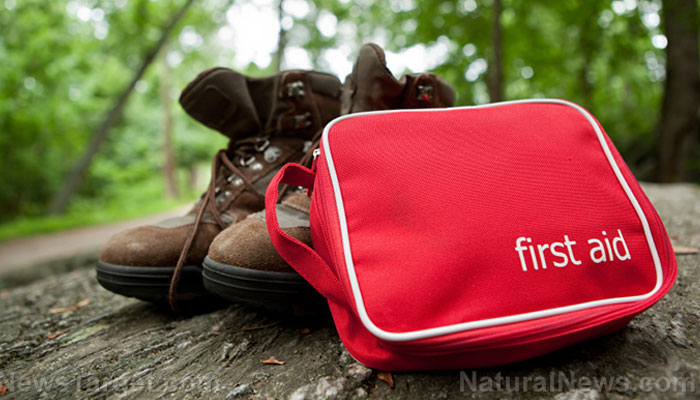![]() Home > Lifestyle
Home > Lifestyle
5 Must-Know, Basic Medical Practices That Can Save A Life

News Target | Natural News
![]() September 18th, 2024 | 01:47 AM |
September 18th, 2024 | 01:47 AM | ![]() 209 views
209 views
NATURAL NEWS
As a prepper, expanding your medical knowledge is important. However, there are some life-saving medical practices that are often overlooked. (h/t to TheOrganicPrepper.com)
#1 Washing your hands thoroughly
Washing your hands with soap and water is a simple practice that can save your life, but it is almost completely forgotten or neglected. How you wash your hands also matters. It is important to create the friction of rubbing your hands together with the water washing the bacteria away. Doing this can greatly lower the transmission of infectious diseases. Forgetting or neglecting to wash your hands can lead to bacteria transferring from your hands to your food, your mouth, or to open wounds, which would expose them to potentially life-threatening infections.
#2 Ensuring that you have clean drinking water
No matter how thirsty you are, don't just drink any water. Make sure that the water is clean and safe to consume. Drinking unpurified or unclean water can lead to serious gastrointestinal infections.
#3 Knowing how to open an airway and position a patient
Being unconscious, regardless of the cause, puts a person at an increased risk of obstructing their airway – which can lead to death. You can open a patient’s airway by slightly tilting their head and lifting their jaw forward. Then, place them on their side.
#4 Applying direct pressure to stop bleeding
Got a bleeding wound? You can stop the bleeding by applying direct pressure to the injury site for 10 to 15 minutes. The pressure compresses the wall of the damaged blood vessels. If the injury is on the arm, elevate the wound above the heart and apply pressure using a clean compress until the ambulance or any medical help arrives. You may also use tourniquets or hemostatic compounds to stop the bleeding. However, 95 percent of wounds will not need them.
#5 Making oral rehydration solutions
Sick and injured people typically feel nauseous and are reluctant to drink water. As a result of their sickness or injury, their gut often feels sluggish and does not work as well as normal. Making an oral rehydration solution can improve their condition and even save their life.
Oral rehydration solution is a good way to deliver fluid and electrolytes to the body. This approach can help people who are experiencing moderate to severe dehydration. Since sick and injured patients are often reluctant to drink anything, you would have to give them small amounts every so often. You can start by giving 5 milliliters (mL) every two to three minutes, then 150 mL every hour, and 1.5 L in 10 hours.
Other crucial survival skills you need to know
Preppers also need to prepare and maintain a first aid kit. Having a fully stocked first aid kit can save you time from rummaging for the right items to treat an injury. Bandages and gauze are standard supplies that a kit must have. Add items that would meet the specific needs of your family members. Include alternative medicines like medicinal herbs and plants, as well as essential oils that serve as remedy for minor to moderate injuries. Consider taking a basic first aid course or a refresher course to learn other medical survival skills that can prepare you for medical emergencies. (Related: Emergency first aid checklist: Herbs, medicines and tools for holistic medical safety in any crisis.)
Source:
courtesy of NATURALNEWS
by Melissa Smith
If you have any stories or news that you would like to share with the global online community, please feel free to share it with us by contacting us directly at [email protected]